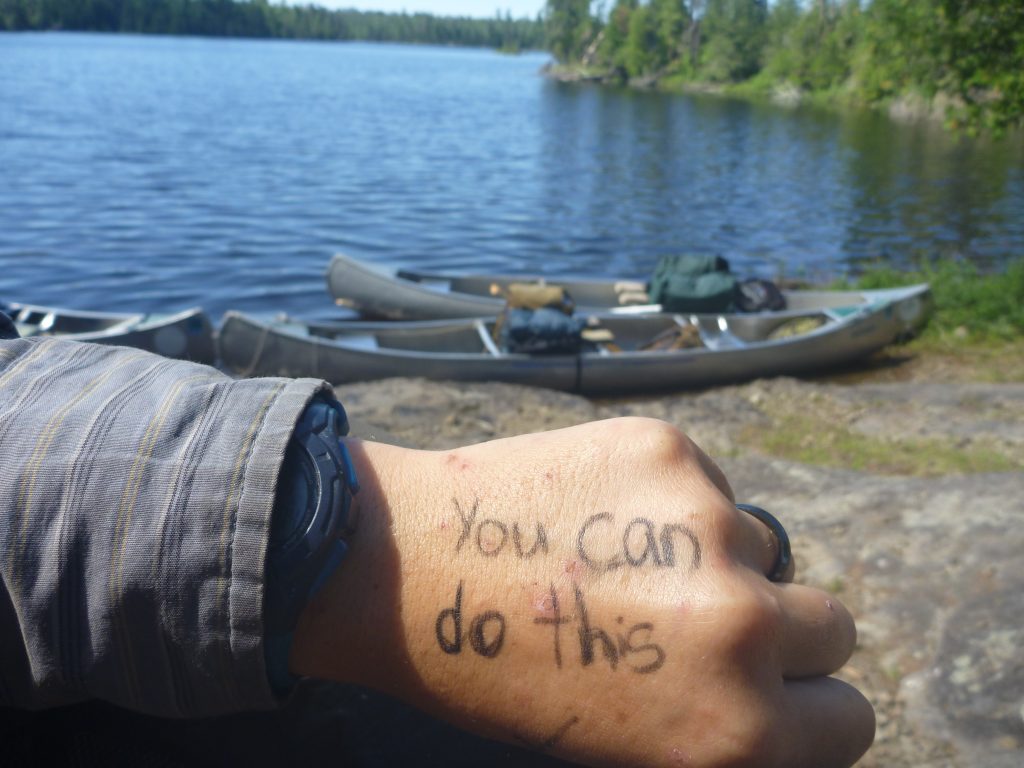If you’re considering Intercept for your family, you may be wondering how you can get your child’s support for going on a course. We asked an Intercept Instructor to provide a few tips and things to think about when talking with your child.
***
I understand that it can be difficult to talk to your teenager about doing something they don’t want to do. Especially if you believe your teen could benefit from an Intercept course. I’ve outlined a few strategies that work when it comes to motivating a teenager.
1. Listen, Listen, Listen
Much of our work at the Intercept program is informed by the best practices and research in psychotherapy. And the basis for most therapeutic approaches is active listening.
Often, I see parents that dominate the conversation when they and their child don’t see eye-to-eye.“If only I could convince them to see it my way!” For whatever valid reasons you have for sending your child to Intercept, now is the time to put those aside and listen to your child. How are they feeling? Do they want to go? Why or why not? What scares or excites them about course? Do they think that this decision is fair?
As Instructors, we often remind each other to LAV (Listen, Acknowledge, Validate) when talking to a student. You may find this acronym helpful as well:
- Listen: Don’t simply wait for your turn to speak. Hear every word that your child is speaking and make sure not to discredit any of it.
- Acknowledge: Make sure you are hearing your child correctly. Repeat back what you’ve heard and summarize their ideas to see if you are understanding their point of view as best as possible. Acknowledge their experience, even if you don’t fully understand it.
- Validate: After first hearing and understanding, it’s time to accept whatever they have said or feel without judgment. This doesn’t mean that you have to agree with them! Your goal is for them to feel safe to feel whatever it is they are experiencing. It’s okay if they don’t want to go, and this is not the place to convince them. This is the time to validate that it is okay to feel that way.

Photo shows the Family Conference of the Intercept Boundary Waters Semester. Photo by Holly Noble.
2. Trust is Key
We spend a great deal of time and curriculum on how to build and keep trust. Even if your child has broken your trust in the past, it doesn’t make this the time for you to do the same. What kind of lesson will that teach them in the long run?
There is no air conditioning, no private rooms, phone calls or daily showers on their course, so it’s unfair to tell your child that there will be. If you are unsure of something your child has asked about, inform them that you are currently unsure, that you will get the answer, and then contact us for more information.
If you have promised your child something in regard to this course, whether a reward for completion or a consequence for not, be ready to follow through. Trust is only as strong as your word. Instructors may also be interested in knowing these “levers” later on, in order to help us motivate your child throughout course.

3. Ask Your Child Why They/You Think They Should Attend
This next step comes directly from Dr. William Glasser, developer of Reality Therapy. Once again, your child should do most of the talking. The goal is for them to make a value judgment about their behavior (whether it has been beneficial or not).
We all hope for a young person to acknowledge that their poor decisions have landed them in undesirable situations. While this can occur, often it doesn’t. Be patient. If the conversation becomes heated and needs to wait until the next opportune moment, that’s okay.
Press your child to explore their behavior recently, but remember not to judge! Motivation and change can only come as a result of a person wanting to change themselves. Ask questions that help them examine their actions. “When you talked back to your teacher, what were you trying to accomplish? Did it make the situation better or worse?” Ask questions that help them to examine their resistance to Outward Bound. “What makes you say that 28 days in the wilderness is impossible?”

Instead of “This will be good for you,” turn it into “How do you think this might be good for you?” If you tell them what you think instead of asking them what they think, you’re going to get responses you don’t like, or maybe, no response at all. Let them do the talking. And if they’re not ready to talk, that’s okay, but don’t let them get away with silence forever. We hold high expectations at Outward Bound and this is a good time for them to be held to the same standard. If you are showing up to listen, acknowledge and validate them, the least they can do is show up too.
4. Make a Plan and Act
So you’ve listened and validated your child’s concerns, you haven’t made any false promises, you’ve explored the reasons and benefits of attending, and they’re still not budging? It time to end the argument.
Endless argument (what we refer to as figure-eighting) is not productive, so it’s time to do something that is. As compassionately as possible, inform your child that you’re always willing to talk and help them prepare, but the Intercept course is rapidly approaching and that isn’t going to change. They now have two options: to prepare and make the best of it, or to continue feel sorry for themselves and suffer through the time leading up to course. It’s their choice.
As much as you can help your child prepare for course, the better. Don’t let them go it alone, but don’t do it all for them either. The more involved they are early on, the more invested and comfortable they will feel—especially as they see you participating and investing in their success. Go shopping together, read about the outdoors together or work out together. We recommend that students begin breaking in their boots and condition for the physical demands of the wilderness weeks ahead of time.

This is a perfect opportunity to show them that you’re willing to put just as much skin in the game as they are. Continue your conversations about Outward Bound frequently; normalizing the upcoming event helps build trust and comfort.
Start now! I have had students who didn’t know they were going until a day before course start! Unsurprisingly, these students were less successful than their expectant peers.
5. Take a Break
If a conversation isn’t going well, don’t force it. Your goal should be to smooth their resistance out over time, like water gently shaping a stone. Don’t try to break their resistance down by shaping the stone with a hammer.
While not pushing too hard, it’s important to remember not to be a pushover either. It’s okay to walk away if things become heated. And there is no need to prepare every single day for months ahead of time. Often times, the biggest struggle a student experiences is being away from their family. They want to feel loved. Have as much fun as possible bonding. If they leave on day one of their course knowing that your reason for their attendance comes from a place of love rather than distrust or desperation, then you have done your job. Intercept is as much about you as it is about them, and they can’t be successful without the whole family’s effort.
We’re looking forward to meeting your entire family. Some of the most inspiring moments I have experienced have been with Intercept families. With a little bit of patience, courage and hard work up front, I hope to add your family to the list. Good luck and don’t hesitate to contact us for more information.

Photo shows the Family Conference of the Intercept Boundary Waters Semester. Photo by Holly Noble.
About the Author
Christian Vogelgesang has been instructing for the North Carolina Outward Bound School for over two years. His favorite part about the job is watching a crew rise to meet a challenge. When he is not instructing, he can be found playing music or playing pranks.
OTHER POSTS YOU MAY LIKE
Read More
Read More
Read More




